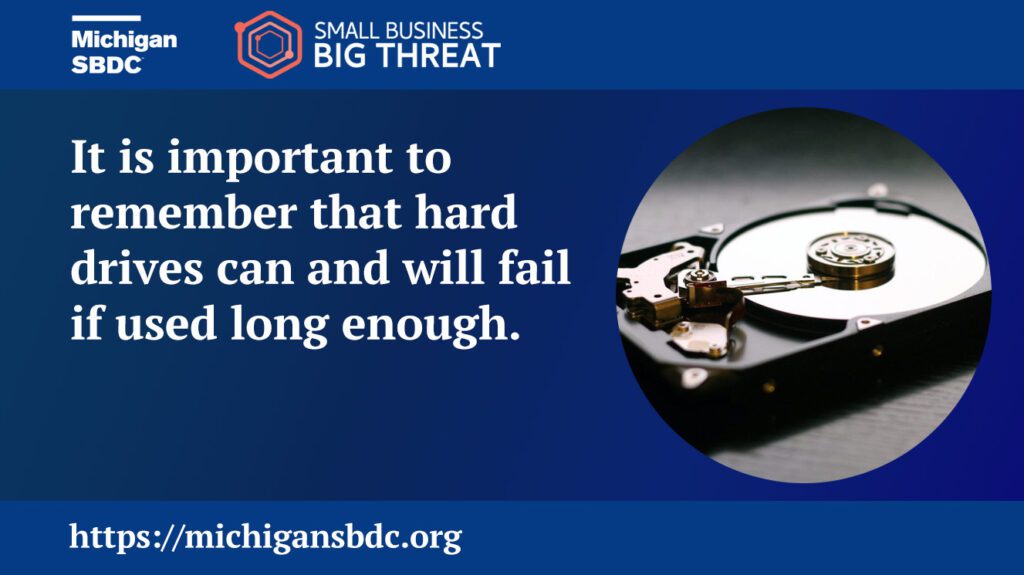
New study finds newer manufactured hard drives have a higher fail rate than older hard drives, so it is time to backup your hard drives. Ars Technica reports about a study identifying new hard drives have a higher failure rate than older ones. So for all of you who save only to your computer and not to an external drive or storage, now is the time to backup your data before you lose it forever. For more information on this study, checkout Secure Data Recovery.
Backing up your data
It is important to remember that hard drives can and will fail if used long enough. So backing up your data to a secured and accessible storage device or location is best practice and critical in protecting your data and your small business. The loss of data can close a business for good.
Best practices of data backups
Not all data backups are equal and there are a handful of different methods to consider. This all depends on the individual needs of your business. Some businesses may require full daily backups, while others can utilize full backs up once per week. Other businesses may need multiple daily backups, while some need partial data daily backups. As you can see, it can be tricky to know what is best for your business. So with that in mind, the very first thing you should do is identify and really understand the data that you save. You want to classify your data from most important to least important, this will help you know which data is most critical to the daily operations of your business.
Data backup types
- Offsite – backups that are stored at an offsite location, with the purpose of protecting them if a disaster happens at the business’s location.
- Onsite – backups that are stored at the business location, these are used as the primary backup and are readily available.
- Portable – backups done on external drives that you can easily take with you
- Cloud – backups that are stored remotely
- Automated – backups that occur at a selected time or every time data is altered
- Incremental – backups that occur when data changes
- Full – a complete backup of all data
For more information on cybersecurity, checkout our other Small Business Big Threat Security Bytes articles.